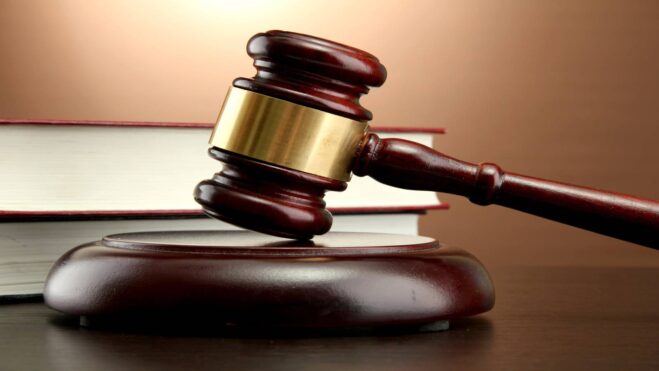The hub-and-spoke model at the center of the drawn-out legal battle surrounding Florida online sports betting is not a one-size-fits-all approach that will work in all tribal gaming states, including California, attorney Joseph Webster said Wednesday.
“It is going to vary state by state,” Webster said. “This is a tool that’s available to tribes. It’s an option. In some places, I think this could work very well. Some places, probably not. In other states, there may be ways to basically modify the approach. This is not a cookie cutter. The hub-and-spoke idea is one that is sort of a starting point, but there’s ways that it could be modified to address local circumstances, local political realities.”
Webster, a partner at Hobbs Straus who was the lead attorney for the Seminole Tribe in the West Flagler case in Florida, was a guest on Indian Gaming Association Conference Chairman Victor Rocha’s weekly webcast, The New Normal. Wednesday’s discussion focused on the hub-and-spoke model’s role moving forward for tribal gaming and sports betting.
Hub-and-spoke was an important tool for the Seminole Tribe of Florida and its ability to offer sports betting in Florida in its defense against a lawsuit brought about by West Flagler Associates, a Florida gaming company that owns Bonita Springs Poker Room and once owned Magic City Casino in Miami.
Florida’s sports betting saga
West Flagler’s bid to derail what amounts to the Seminoles’ sports betting monopoly in Florida all but ended in June when the U.S. Supreme Court denied West Flagler’s petition for a writ of certiorari.
West Flagler argued that the Seminole Tribe’s 2021 gaming compact with the state of Florida, which allowed the tribe to offer online sports betting in Florida, violated the Indian Gaming Regulatory Act (IGRA) because it allowed for wagering off tribal land.
The Seminoles argued, however, that the arrangement was legal since the wagers were being accepted and processed on servers located on tribal land.
“It’s a way to use both federal law and state law together, where you have the server that is receiving and processing the wagers located on Indian lands, which is the hub, and the spokes are the devices that are being used to transmit the wagers to that server that may be located off Indian lands,” Webster said.
The Seminole Tribe, which operates six brick-and-mortar casinos in Florida, launched Florida online sports betting with its partner, Hard Rock, in November 2021. After being online for a little more than a month, the tribe suspended sports betting activities as a result of a court ruling.
The legal battle continued for years in state and federal courts, but the Seminoles and Hard Rock relaunched sports betting in December 2023. June’s SCOTUS decision has left West Flagler with very few legal options. The hub-and-spoke model prevailed.
“One of the things I always thought was a real strength of the case, in addition to the law, was that you had all three sovereigns on the same side,” Webster said. “This was not just the tribe’s position. It wasn’t just the federal position. You had the state government, federal government, and tribal government all essentially in lockstep that this was permitted as a matter of federal law.”
That cooperation between the Seminoles and state and federal government can be an approach for tribes in other states.
“[Florida’s cooperation] shows a path forward; a very complicated path, I think, for a lot of tribes,” said Rocha, who is also a member of the Pechanga Band of Luiseño Indians in Temecula, California. “California is going to be difficult.”
What does it mean for California?
Only 12 states in the U.S. do not offer some form of legal sports betting, with California being the largest by population. Indian tribes in California run nearly 70 brick-and-mortar casinos, but online gambling is illegal in the state.
The Seminoles’ legal victory behind the hub-and-spoke argument has again sparked optimism for California sports betting prospects.
“Everyone is focusing on the fact of where the server is,” Rocha said. “From the layman’s point of view, one of the bigger issues here is the fact these compacts can be negotiated between the tribes and the governors and the [Department of Interior], and as long as sports betting is legal in the state, then they can go forward with it.
“The big issue you have in California right now is that sports betting is not legal,” Rocha said.
California’s sports betting hopes took a giant step backward after a failed 2022 ballot initiative. Sportsbook operators tried to legalize sports betting through the voters and without the support of California’s tribes through a constitutional amendment.
The initiative flopped miserably, with Prop 27 going down in defeat at the ballot box in November 2022.
“In terms of California, you would need to have both parts there,” Webster said. “You’d need to have a compact and the conforming change in state law.”
When the state law may change is anybody’s guess at this point. James Siva, chairman of the California Nations Indian Gaming Association, would not commit last month to a specific date when tribes might seek a sports betting change.
Still, the blueprint of cooperation and hub-and-spoke that Florida has provided is a positive for tribal gaming.
“You have to have a cooperation between the states, the feds, and the tribes to get this done,” Rocha said. “It’s a path forward. It’s going to be easier for Kansas or Minnesota than it is for California.
“California depends on the cooperation. If the tribes are all on the same page, it could be nice and smooth and easy to stand in front of the tribes with the governor and the Department of Interior, saying we approve of this. … There’s a lot of moving parts to that still.”






